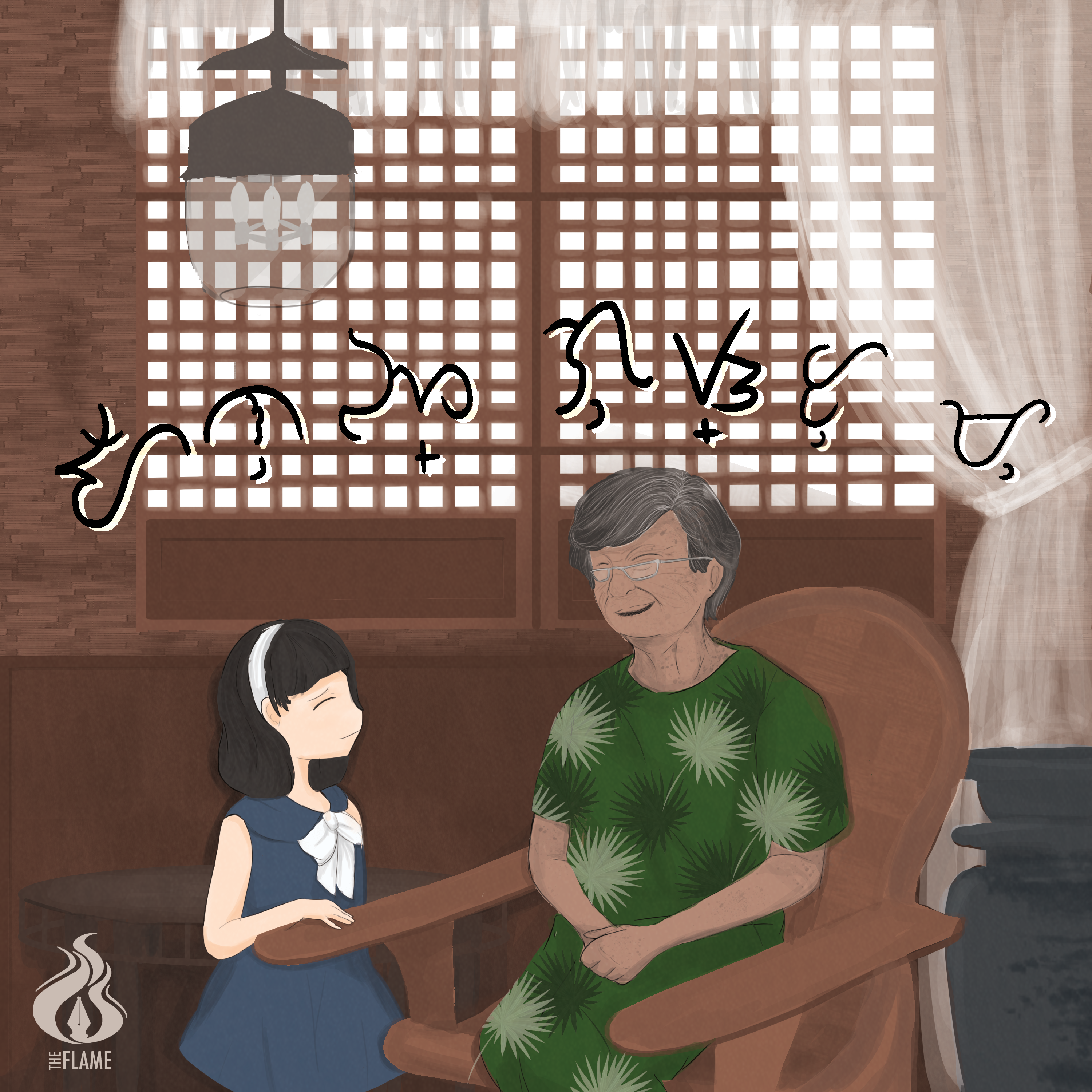By ISABELL ANDREA M. PINE
EDITOR’S NOTE: This piece is one of the works in a five-part series in line with the Dapitan 2019 theme Insureksiyon. All works that are part of the series are written by the Flame’s Letters staffers.

MY EARLIEST memories of my grandmother are her giddy smiles and the scent of her fabric softener. To my three-year-old self, she was a best friend whom I can never live without; every place she stepped on forged paths to new adventures. Our apartment became our playground, with her chasing me whenever I wanted to play taya-tayaan and looking for me whenever I wanted to play tagu-taguan. Every moment in my childhood was filled with her presence; her face etched itself deep into my mind like deja vu constantly played on repeat.
She was the prime parental figure during my parents’ absence. I could still remember how she would sleep beside me whenever my parents were not yet home and how she would sing me lullabies whenever I had nightmares. Her soft rhythmic voice was like a blanket against the harsh coldness of my loneliness. Though, in time, I began to realize something unusual.
I noticed the changes as I grew older. To my surprise, my mother started becoming more present in my life and had dedicated herself to teaching me how to fit in. Perhaps it was because I was going to a school that she felt like she needed to prepare me for: the world outside my playground.
Slowly, my time with my grandmother became shorter and the gap I never knew we had grew larger. It took me so long to realize that she never really talked to me anymore. She would sing to me, but the lyrics she sang never made sense to my ears; whenever she talked, she only ever spoke to my mother. It had never occurred to me that I never really understood the words she uttered. I had just always assumed that we were communicating just fine.
I confronted my mother about my observations and asked her why I could not speak the same way my grandmother did, but she simply shrugged me off. “Your bita speaks Filipino, sweetie. You need to speak English here in America because no one understands Filipino.” I then proceeded to ask her if she could teach me how to speak Filipino anyway, and she said it was something I did not need to learn.
However, I was afraid of the gap growing between my grandmother and me. On that same night, I asked my grandmother to teach me Filipino. The blooming smile on her face was all I needed to see to know that learning the language was important. She taught me everything I knew about my heritage, like how our dialect back home is Chabacano and how it is respectful to say “po” and “opo.” I started speaking more Filipino than English. My father did not seem to like it because he said it made my English sound “wrong.”
The moments with my grandmother had always felt so timeless that it never occurred to me that there would come a day that I would lose her.
On my way back home from school, I opened our door to greet my grandmother. I could still remember her swollen eyes as she forced herself to smile at me. In her hands were two suitcases and in the living room was my father who was taping a balikbayan box shut. I was about to ask her why, until my mother called me to change my clothes. While I was changing, my mother told me that grandmother decided to go back to the Philippines. Deep down, I knew that was not the whole truth.
During our drive to the airport and our walk to the departure lane, I held my grandmother’s hand tightly in an attempt to keep her with me. We were both bawling as we tried to say our goodbyes. My tears would not stop falling as my father drove us back home. He looked very guilty.
My grandmother’s absence was my motivation to continue learning the language that my parents prohibited me from mastering. They were upset about it at first, but they slowly began to accept it.
It was a phone call that brought bita back in my life. We were told by our relatives that she had developed Alzheimer’s and that it was only getting worse. No one wanted to take care of her, so my mother decided that it was time for us to go back home.
The thought of living with her again brought me joy, but when we arrived at our home in Ternate, it was too late; she could no longer remember us.
Once again, I held her hand and I whispered to her the words that I had always wanted to say when she was with me.
“Salamat po.” F



